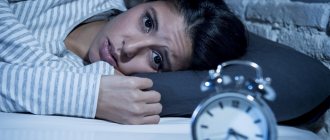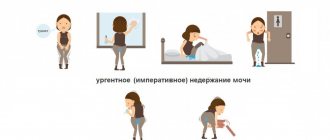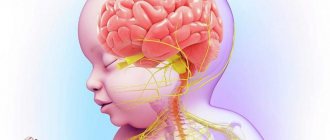The complex rhythm of life leads to the fact that neurosis and insomnia occur in almost every resident of megacities. The disease is not considered an organic lesion of brain activity, therefore, with timely treatment and elimination of the cause, the patient can return to normal life. The main condition is to consult a doctor without prolonging the problem. Otherwise, a person experiences multiple negative consequences that affect both the general perception of life and the health of internal organs and systems.
Relaxation
In the initial stages of an advanced disease that can be cured without medication, relaxation can be used as a means of getting rid of these problems. Here you don’t even need the help of a doctor, you can do it on your own, but you can’t do this without following the recommendations listed below:
- Strict adherence to a daily routine, where sleep and waking up will be at a certain time. This is necessary for the body to adapt. Even a day without a schedule for sensitive people can develop into a serious problem that only a doctor can remove.
- Avoid daytime naps completely, because even after it there will be no feeling of normal rest, only fatigue and the inability to fall asleep in the evening. Especially if it is not on a regular basis, the body begins to react as if it had already rested. Therefore, in the evening there is no desire to sleep.
- You need to get ready for bed if your body requires it. This will manifest itself as drowsiness and yawning. Don't forget to create comfortable conditions for relaxation. To do this, you need to turn off or dim the lights, eliminate noise, and prepare a comfortable sleeping place. Somnologists recommend that if you experience frequent insomnia, sleep alone so that no one can disturb your rest, interrupting your already sensitive sleep.
- If you can't sleep, don't torture yourself with trying to fall asleep. It is recommended to get up and return to bed after 20 minutes.
- Create an artificial lack of sleep so that the body itself wants to sleep and improves the quality of rest. To do this, you need to get up early, which will not only help solve the problem of sleep, but also add time for useful things around the house or work.
- Before going to bed, do any relaxation activity from light exercises to breathing exercises. Surprisingly, a couple of minutes of proper breathing are very relaxing and sleep comes in a few minutes, and its quality is much higher than without such breathing exercises.
- Avoid or minimize your use of alcohol, tobacco, and caffeinated drinks. Especially in the afternoon. Most often, a cup of coffee after 18.00 provokes insomnia; it is better to drink warm milk with a spoon of honey, which will relax the body and help you get good rest.
- Move training or strength training to the first half of the day to exhaust the body, but without the fatigue that prevents you from falling asleep even more. Often, it is after strong physical activity in the evening that the body cannot fall asleep, because it has already picked up the pace of activity. You need to help him by postponing the workout the next morning, and in the evening it’s better to sit with a book or watch a light movie so that the body becomes calmer and gives an impetus to sleep.
Preventive measures
As a preventive measure, doctors advise avoiding factors that can cause neurosis, as well as streamlining your daily routine. Simple tips will help: go to bed at the same time, eliminate coffee from your evening diet, and be able to distance yourself from work problems.
And you shouldn’t try to force yourself to fall asleep, it’s better to ventilate the room, stand under a cold shower and lie down under a warm, heavy blanket.
Oddly enough, this method helps you fall asleep quickly even in the most difficult cases.
Treatment methods for sleep disorders associated with depressive disorder
How to cure insomnia and other sleep disorders with depression? Only complex therapy, including relaxation, consultations with a psychotherapist, and the use of medications, will help restore healthy sleep and restore peace of mind.
Sometimes a person prescribes treatment for himself, thinking that the insomnia will go away the next night. However, most often only a specialist can tell you what to do to get rid of lack of sleep and anxiety.
Attention! Any medicine can only be prescribed by a doctor after a thorough examination. Incorrectly selected treatment measures can lead to worsening of the condition
Medicines
The drug treatment for depression involves prescribing antidepressants, which help normalize the chemical balance in the brain and promote the production of serotonin. Drugs such as Cipramil and Cipralex improve mood, increase motivation for activity, reduce drowsiness, help restore a feeling of joy, and get rid of apathy.
But they can also lead to sleep problems, in particular insomnia, so their use should be monitored by a specialist. The main component of Valdoxan, agomelatine, helps both reduce mental stress and restore sleep. Elenium is prescribed to treat insomnia and reduce nervous tension. Anaprilin reduces anxiety.
Sleeping pills and sedatives are often used to treat insomnia due to depression. You can only take herbal products on your own. All others are prescribed by a specialist and are issued only by prescription.
Sleeping pills can be addictive, so it is important to monitor your condition, not self-medicate, but let a specialist decide how to deal with insomnia
Other methods
A psychotherapist is an important and sometimes irreplaceable assistant in the fight against sleep disturbance due to insomnia. With its help, you can find the causes of the problem and understand them. Several sessions will help alleviate a person’s condition, increase his self-esteem, reduce anxiety and eliminate fears.
Drug treatments may have temporary effects. An additional means of getting rid of insomnia is a daily routine, showering before bed, ventilating the room and maintaining a comfortable temperature in it. An evening walk or jog two to three hours before bed will give you some energy and improve your mood.
Relaxation and meditation will relieve stress and insomnia. Doing a few relaxation exercises in the morning will help restore your mental balance. Regular exercise before bed, a cup of tea or other drinks infused with herbs, allows you to calm down and take your mind off problems.
Treatment of insomnia in depression is a very important point, helping to break the vicious circle formed by disorders of night rest and a depressed state. Daily deep, restful sleep will allow the human nervous system to rest, get rid of tension and negativity.
Treatment of insomnia due to nervousness
When treating insomnia against the background of neurosis, it is necessary not only to normalize night rest, but also to get rid of the causes that create this problem. Therapy varies in duration and includes various psychotherapeutic methods, sports, taking medications from natural ingredients and synthetic agents.
Homeopathy
Homeopathic medicines are made from natural raw materials, have a minimum of contraindications, and are not addictive:
- "Sonylux" - has a gentle effect on the body, reduces fatigue, anxiety, irritability, and improves sleep quality. It is even prescribed to children.
- "DreamZzz." The drug is indicated for insomnia associated with sudden mood swings, constant worries for no reason, and depression. The components contained in the composition relieve nervous tension, normalize cardiac activity, central nervous system function, and increase immunity.
With the help of homeopathic medicines, a person becomes more balanced and his sleep becomes more efficient.
Drugs
Treatment for patients with depression is prescribed by a doctor based on the clinical picture of the disease and concomitant pathologies. There are three types of funds:
- Sleeping pills. Makes it easier to fall asleep and increases the depth and total duration of sleep.
- Sedative medications. Helps you relax, calms your nerves, and reduces excitability.
- Tranquilizers. Antidepressants are potent drugs that directly affect the functioning of the central nervous system.
Synthetic drugs often cause adverse reactions (hypotension, drowsiness, cardiac arrhythmia, dry mouth, weight gain, constipation). The contraindications in the instructions for the drug are first studied, and only after that a decision is made to be treated with it or not.
Psychotherapy
The following psychotherapy methods help relieve stress and insomnia:
- Psychoanalysis. There are 2 types: individual (working with a person under hypnosis) and group (people talk about their problems to each other).
- Cognitive behavioral therapy. Aimed at eliminating negative thoughts associated with sleep and overcoming the fear of insomnia.
Psychotherapy, through relaxation and meditation, helps eliminate nervous tension and stress that cause insomnia.
Sport
Relaxing physical exercises really calm your nerves, improve your mood, and help you cope with insomnia without medications.
Perform simple exercises that are suitable for any age:
- Lie on your left side, raise your right leg 10 cm, then your arm. Keep them suspended for 2 minutes. return the arm and leg to normal position. Repeat 3-4 times.
- Lying on your back, raise your arms 10 cm, hold for 2 minutes, lower. Then raise your legs to the same height, alternately spreading and bringing your feet together. Perform for 2 minutes.
- Lying on your stomach, raise your foot (knee remains on the bed) 10 cm, hold for 1 minute. Repeat for the second leg.
Continue exercising until you feel slightly tired.
Traditional treatment
Folk remedies for insomnia are taken alone or in combination with potent drugs.
Recipes for making infusions:
- Place a teaspoon of dill seeds in a glass of boiling water, cover and leave for 30 minutes, strain after cooling. Take in the evening.
- An infusion of 15 g of dry lemon balm leaves is prepared in the same sequence. The liquid is drunk in small portions throughout the day.
- Pour into 1 liter of boiling water 30 g of dry herb, motherwort pentaloba, marshweed, 40 g of common heather, 10 g of valerian roots, wrap and let stand for 12 hours, then strain. Drink a glass of infusion before bed.
Regular, long-term use of herbal infusions helps calm the nerves.
Homeopathy - why it should be used in treatment
Homeopathic medicines will help you cope with insomnia during a nervous state. They are absolutely safe for health because they are made from natural and healing products and plants. In addition, homeopathy contains environmentally friendly ingredients that simply cannot have a negative effect on your health.
Attention! Treatment of neurosis and insomnia with the help of “serious” medications is prescribed only if the diseases occur in severe cases and seriously threaten the patient’s health.
Homeopathy is a group of safe and completely natural medicines that have virtually no contraindications or side effects on the human body when taken regularly.
Every person can take homeopathic remedies.
Medicines that effectively eliminate nervous excitability and normalize night sleep.
Sonilyuks
A drug that has a completely natural base. It contains only useful and safe natural ingredients that have a positive and gentle effect on the central nervous system. The medicine does not cause side effects or addiction, so you can safely take the full course - this has been repeatedly proven by experts.
In addition to individual intolerance by the body to one or more components of the drug, Sonilyux has no contraindications to taking the drug. The active ingredients of the medicine are: alishan gaba, lofant, beaver stream, as well as 32 medicinal herbs.
Thanks to this composition and proper use of the drug, it is possible to fall asleep quickly and soundly, as well as overcome the symptoms of a nervous disease. Sonilyux also helps eliminate anxiety, frequent emotional outbursts and excessive aggression.
This medicine is actively used for insomnia and psycho-emotional lability. This natural drug calms the central nervous system, increases the body’s protective properties, and also increases the body’s vitality.
Thanks to the collection of herbs that are beneficial to health, the patient’s body is able to completely relax, thereby restoring normal, complete sleep. Even children aged 2 years or more can take the medicine. The drug is not addictive, which is considered its undoubted advantage.
These types of homeopathic remedies are considered the main ones, which are prescribed to patients with nervous disorders and insomnia. To improve the effect of drugs, the doctor can prescribe the use of traditional medicine recipes and attending psychological classes, which will quickly normalize the patient’s health.
Insomnia is a neurosis?!
Insomnia is a neurosis?!
I don’t know if this has occurred to you, but insomnia is a real neurosis. Judge for yourself: a person knows that he needs to sleep, he even wants to sleep, he goes to bed for this purpose, but he just can’t sleep! In other words, a person’s desires do not coincide with his capabilities, this causes him to be in a state of stress, and when stress begins to take its toll, all hell breaks loose.
Every person experiencing a state of stress tries to get out from under its pressure, which causes natural tension in him. But the whole problem is that stress is just such tension. That's why all stress is a self-starting machine! You experience the discomfort associated with tension, you strain in order to relieve this tension, and as a result, your tension only intensifies.
With insomnia, everything happens exactly the same way. At first you want to sleep, but you can't fall asleep. The causes of sleep disturbance, as we already know, can be very different - from caffeine to depression. Of course, in this state you don’t care about the reasons for your insomnia; you should fall asleep and be done with it, but you can’t. You start to get nervous and worry that you won’t fall asleep, get enough sleep, won’t rest, and tomorrow you’ll have to get up and go to work. There is a fear that the next day you will feel bad, that you will not be able to cope with some things, you begin to be afraid of these things themselves...
Here you say to yourself: “Okay, that’s enough! Need sleep!" And you try to fall asleep, but your body is already tense, you stimulated it with your thoughts, your ideas about the future and other internal images. Naturally, he got scared, and this automatically leads to an increase in muscle tension, disruption of natural breathing, blood pressure rises and a heartbeat occurs, which you hear in the silence of the night, like the chimes. Then you sweat, you feel stuffy, uncomfortable, and muscle tension makes you spin around like a snake in a frying pan.
“Well, what is this! - you exclaim and, like a roly-poly, sit down on the bed. - Crap!" At the same time, your head is thinking weakly, because you are half asleep, some images, thoughts randomly creep into your head. This is natural, because the processes of mental inhibition have already been launched, but they did not have time to slow down some areas of the brain, and now in your mind there is some kind of hash of thoughts and a lot of anxious experiences.
You get up and walk to the kitchen or bathroom. You have nothing to do, but “need” to sleep, and you return to bed, but now the bed itself is perceived by you not as a place of blissful rest, but as a real place of execution. But with all this, you really want to sleep, it’s just painful, you’re falling asleep! It seems to you that a dozen or two Phoenix birds have gathered around, but they are all howling their lullaby with such noise and crackling that it is basically impossible to fall asleep with such hubbub. And now you have the impression that your problem with sleep is immense, that you have not slept for half the night...
We tell ourselves: “It’s necessary, I’m in such good shape!” I worked all day and still have some strength left!” - and our mood would only improve. Or, for example, if we used the following formulation: “Well, really, what nonsense! Just think, I won’t fall asleep... I won’t get enough sleep today, but I’ll sleep off tomorrow. If not tomorrow, then the day after tomorrow,” and we wouldn’t have any anxiety.
The very word “insomnia” evokes fear in a person; every person at least once in his life suffered from the fact that he could not, despite the need, fall asleep, and therefore we are simply physically afraid of insomnia. We have repeatedly heard people complain about how they suffer from their insomnia (for example, I heard this from my grandmother from early childhood and I think that everyone has had a similar experience in life), we are trained to be afraid of it. And what is fear, if not the complete and categorical opposite of good sleep, with its calmness and carefreeness? And therefore, from the word “insomnia,” as if from some kind of devilish spell, the true insomnia of every person suffering from sleep neurosis traces its history.
Well, I think that the situation with sleep neurosis is generally clear, so let’s start treating it...
Insomnia in adults - what to do, what medications to take, pills: treatment
Treatment of insomnia
Of course, you can get rid of insomnia with the help of medications. We will tell you about them, but it is not recommended to take them without a doctor’s prescription. Moreover, the drugs may have some contraindications.
First, let's talk about herbal remedies. They are the most forgiving of all. As a rule, the composition includes exclusively natural plant ingredients.
- Biolan. The drug allows you to normalize the functioning of the central nervous system, and this relieves insomnia. The drug is not cheap, but it is considered the safest. At the same time, Biolan strengthens the body, improves blood circulation in the brain and increases performance.
- Ortho-Taurine. This drug contains many useful substances. It allows you to improve sleep and increase performance. As you take it, irritability goes away and your mood improves. The product is used for a course of 10-30 days and one capsule before bedtime.
- Balance. Combination type product. If you regularly take one tablet twice a day, you will get the optimal effect. Thanks to Balansin, the lack of vitamins and other nutrients is compensated. As a result, it becomes easier to cope with large emotional stress.
- Neurostable. The drug contains medicinal herbs, as well as B vitamins. It is used not only in folk medicine. Even doctors use it for prevention or treatment. It is taken for a month, two tablets.
There are also special medicines. Each of them has a different operating principle. So they are as follows:
- Roserem. Allows you to return sleep to normal, but does not affect the central nervous system. Experts say that it can be taken for a long time and is not addictive.
- Ambien. With its help you can fall asleep within half an hour. This is a sleeping pill, and therefore can be prescribed by a doctor. At the same time, it cannot be taken for a long time - a maximum of 10 days.
- Lunesta. It also helps you fall asleep quickly and for 7-8 hours. So if you are not sure that you can get that much sleep, then it is better not to use it. Otherwise, you will feel like you haven't gotten enough sleep.
- Sonata. It is a new generation drug. You can drink it at any time and even for any sleep time. It leaves the body quickly and therefore no side effects are felt the next morning.
- Zolpidem. Available in tablets. After taking it, falling asleep occurs within 11-30 minutes. The drug is not intended for course use; this can be done periodically when you cannot fall asleep. By the way, its use may cause unwanted side effects, for example, obsessive thoughts, headaches and drowsiness.
- Zaleplon. It has fewer side effects, unlike the previous drug, and the body tolerates it well. Although, headaches may appear, which may intensify. When using the drug, you must follow a diet that excludes fats.
Is it possible to cope on my own?
You can solve the problem on your own, but to get rid of severe stress or depression, it is best to consult a doctor. At the initial stage of therapy, external stimuli that lead to worsening mood should be eliminated. It is recommended to spend more time with family or friends and share your problems and experiences with them.
Advertising:
Maintaining sleep hygiene
To normalize sleep, you do not always need to resort to using sleeping pills. Sometimes it is enough to provide comfortable conditions in the room, after which the problem will disappear on its own:
- It is recommended to go to bed and get up at the same time;
- It is best to go to bed no later than 10-11 pm;
- in the bedroom there should be an air temperature of 18-20 degrees and a humidity of about 40-60%;
- in the late evening it is necessary to abandon active physical and mental activity;
- It is recommended to have dinner no later than 3 hours before bedtime;
- in the evening you need to eat as light and quickly digestible food as possible;
- before relaxing, you can take a shower, listen to relaxing music, or ask a loved one for a massage;
- the bedroom should have as calm an atmosphere as possible - no noise or light stimuli.
Drug therapy
There are many remedies for insomnia that help normalize well-being and get rid of pathology.
If you have problems falling asleep, experts most often prescribe the following medications:
- Sedatives. Produces a calming effect on the nervous system. Most often made on a plant basis. The main components of the medicine are valerian, motherwort, and lemon balm.
- Sleeping pills. Provides quick sleep. Such medications should be used especially carefully, under the strict supervision of a physician.
- Tranquilizers. Prescribed in certain cases when other means do not give good results. They have a depressant effect on the nervous system, which normalizes night rest.
Physiotherapy
To combat insomnia, you can use one of the following physical therapy methods:
- Magnetotherapy. The impact of magnetic radiation on the head and neck area, which improves oxygen saturation of tissues. The procedure normalizes blood pressure, increases the elasticity of blood vessels, and prevents thrombosis.
- Electrosleep. Thanks to the effects of low frequency currents, nervous tension disappears, which leads to normalization of sleep.
- Massage. If you trust a professional, he can identify intervertebral hernias or pinched nerves that make it difficult to fall asleep.
- Acupuncture. Stimulation of certain biologically active points is carried out, which helps to get rid of insomnia and normalize the psycho-emotional state.
Traditional medicine recipes
There are many effective folk remedies that help cope with insomnia and neuroses:
- Mix 200 g of natural honey with 3 teaspoons of apple cider vinegar. The resulting product is taken 2 teaspoons in the evening.
- Lemon-honey-nut mixture. To prepare the medicine, mix 200 ml of fresh lemon juice, 2 tablespoons of honey and 2 tablespoons of crushed walnuts. The product is taken daily in a tablespoon.
- Dill infusion. A tablespoon of seeds or leaves is poured into 430 ml of boiling water and left for 20 minutes. The resulting liquid is taken daily in a teaspoon.
Types of insomnia in the development of neurosis
There are several options for classifying sleep disorders. Insomnia can be situational, short-term or chronic. The first type of pathology occurs against the background of acute stress. The clinical picture usually disappears on its own within a week and does not require specialized treatment. The second type of nervous insomnia is usually provoked by psychological trauma, its symptoms persist for up to a month.
Chronic insomnia is diagnosed when sleep problems persist for more than a month.
This is a serious pathology that becomes a source of physical and psychological problems.
Nervous insomnia occurs according to one of the scenarios or includes several characteristics at once:
- difficulty falling asleep - sleep does not occur for 20 minutes or more after the person goes to bed;
- superficial sleep - night's rest is more like a nap, during which the patient is often visited by very realistic visions or nightmares;
- frequent awakenings at night - the sleeper reacts sensitively to any irritants, which is why he regularly wakes up and then cannot fall asleep for a long time;
- early awakening - the patient wakes up early, after which he is unable to fall asleep, despite insufficient hours of rest.
When stressed, a person cannot fall asleep for 20 minutes or more after going to bed.
Insomnia caused by nerves most often has a combined form, so complex treatment is required. Timely initiation of therapy allows you to quickly achieve the desired result without negative consequences for the body. Refusal of specialized therapy threatens the development of somatic diseases and serious mental disorders.
When can you say there is a problem?
The main symptoms of sleep disturbances in depression are:
- Difficulty falling asleep. A healthy adult needs no more than 15 minutes to fall asleep, but against a background of stress, the patient falls asleep only after several hours of effort .
- The dream is superficial, sensitive. After an emotional shock, a person can sleep very restlessly, often waking up from the slightest external stimuli.
- Nightmarish dreams. As a result, the patient will not be able to rest properly and will feel tired even after a long sleep.
Nervous insomnia leads to decreased performance, irritability, unreasonable fears, and anxiety. The duration of sleep is not a criterion for determining its quality. This indicator is very individual: for some, 5-6 hours are enough to get enough sleep, while others need at least 9 hours.
Types of insomnia in the development of neurosis
Insomnia, or otherwise insomnia, is a chronic sleep disorder that usually occurs 2-4 days after the lack of a normal and full night's sleep. When stress develops in a person, one of the types of insomnia may become more active, which will soon negatively affect the patient’s well-being if he does not take measures to comprehensively treat the problem.
Types of insomnia developing due to neurosis include:
- problems and difficulties with falling asleep in a person - after going to bed he cannot fall asleep for a long time;
- insufficient depth of sleep - a patient with neurosis may wake up at night from any noise or other factor that interferes with normal and complete sleep (this happens due to the fact that the patient does not sleep soundly, but superficially);
- frequent awakenings at night, after which he cannot fall asleep, but he wants to sleep;
- post-somnic night sleep disorders, which are characterized by waking up too early - usually it occurs at 4-6 o'clock in the morning (the person feels lethargic and inactive, but he will no longer be able to fall asleep).
Some doctors claim that with neurosis, insomnia can be considered if, after going to bed, a person is unable to fall asleep for 20 minutes.
This phenomenon already shows that he has problems with night sleep, which need to be treated in a short time - otherwise the neurotic syndrome will aggravate the course of insomnia, which will lead to its long and difficult treatment.
Insomnia due to nervousness, according to neurologists, is a dangerous disease, since the combination of disturbed night sleep with mental disorders seriously inhibits the functioning of the body. It is known that frequent mental breakdowns cause enormous harm to health, which can only be restored by following a long and strict course of treatment.
Therefore, it is better not to let neurosis take its course, because of which insomnia may develop, because then you will need to cure both diseases, which quickly become chronic.
Medical assistance
If you detect a sleep disorder due to nervousness, you should immediately contact a neurologist. There is no point in waiting for the problem to go away on its own.
If you don't get enough sleep for a week, you should go to a specialist. Therapy for each patient is selected individually depending on his age, the degree of neglect of neurosis and insomnia, the characteristics of the body and other important factors.
The doctor may prescribe the following medications and procedures:
- drugs with a sedative effect, they calm the nervous system and reduce its excitability;
- sleeping pills that provide quick sleep and healthy rest;
- tranquilizers that act directly on the central nervous system and are very effective;
- individual or group psychotherapy.
It is prohibited to take any medications on your own. Even herbal remedies can make your problems worse if they are not taken correctly. The dosage of funds and the course of treatment are strictly controlled by the doctor.
Medicines used to eliminate neuroses and insomnia are not suitable for constant use.
The appearance of nightmares before the diagnosis of the disease
It has been noticed that a negative background in dreams appears before the obvious manifestation of the disease. Before the disease, sleep becomes intermittent, problems with falling asleep in the presence of light and noise appear, the slightest external irritation causes awakening. Many unpleasant dreams appear. For some, this happened 1-2 weeks before the disease was detected, for others, several months. For different people, neurastic symptoms manifested themselves in dreams differently - from minor unpleasant scenes, dissatisfaction, to nightmares and a strong sense of fear.
It is interesting to note that with neurasthenia, as well as with mental and physical fatigue, nightmares were most often reproduced at the beginning of the night, but as the person rests, the background of dreams improves, and often very nightmares are replaced by calm ones from evening to morning. This distinguishes them from dreams in organic diseases of the brain, when disturbing dreams can be observed throughout the night and in the morning.
If all neurasthenics are characterized by a predominance of repulsive, nightmare dreams (about 98% of the total), then in different individuals, depending on the predominance of certain disorders, as well as depending on what external causes the appearance of neurasthenia was associated with, the content of some dreams were different. As a rule, the dreams of neurasthenics are associated in an unpleasant way with the situation that contributed to the appearance of neurasthenia.
Dreams of neurasthenics
In addition to scenes with bright and colorful decorations, combined into large visual pictures, in the dreams of neurasthenics, of course, in comparison with healthy people, there were logically connected, complete thoughts. Some neurasthenics, who were afraid of public speaking while awake, have dreams of spectacles in which they very calmly perform on stage in front of a huge audience, reporting, confidently and logically expressing their thoughts.
Very often, neurasthenics have dreams in which they find themselves on the territory of a closed institution, police station, or abroad without proper documents, anxiously looking for a way out of the current situation for a long time. Neurotics also have dreams where they find themselves in another city, a large, run-down building or apartment, from which it is difficult to find a way out. In most cases, thoughts in the dreams of neurasthenics are of a painful nature, expressing doubts, anxiety, failures, as a rule, connecting nightmarish visual scenes with the life situation that contributed to the development of neurosis. In addition to the elements of thinking, in their dreams more often than in healthy people there are sensations of sound, heat, cold, touch, pressure, pain, etc.
Patients with this disease are very sensitive to external and internal irritations. Even the smallest changes in the body, or external irritating factors affecting the patient during sleep, cause them extremely vivid dreams.
Sleep was especially disrupted and the nature of dreams changed in neurasthenics who had committed crimes. Such persons definitely indicated that after committing a crime, sleep was sharply disturbed, and dreams took on a nightmarish character in the plot, associated with a criminal situation, trial and punishment. According to the nature of crimes among neurotics, hooliganism comes first, followed by theft, punishable sexual perversion and fraud.
neurosis and physical illness.
№5 | marfa8 wrote:
№1 | Kuzmichev Alexander Sergeevich wrote: they did not give me an exact diagnosis, but they prescribed droppers and tablets at different times Betaserc, Vestibo, Betagistin, Vesticap
neurotic depression -10.65
asthenia. -3.37conversion disorder. -11.46 obsessive-phobic disorder (obsessiveness). -6.82vegetative disorders -4.79
All indicators were with a minus sign. I understand that it’s stupid to rely simply on the test results, but it was after it that I began to look at what was happening a little differently.
https://youtube.com/watch?v=aGV-uiTo7gw
Insomnia causes and treatment with folk remedies
Adequate, healthy sleep is very important for any person. It is at this time that the body begins to get rid of the fatigue accumulated during the day and restores its energy supply. People may experience sleep disturbances due to a number of reasons:
- severe overwork, stress;
- abuse of nicotine, alcohol, drinks containing caffeine;
- taking certain medications;
- hormonal imbalances;
- prolonged contact with a computer, phone, tablet and other equipment before bedtime;
- excessive exercise in the evening;
- binge eating;
- some diseases (severe pain, Alzheimer's and Parkinson's diseases, apnea syndrome, multiple sclerosis, prostatitis).
Often, impressionable people whose nervous excitability is higher than normal are at risk. Even a small disturbance can contribute to their sleep disturbance. In this case, the person will not be able to fall asleep for a long time, or his sleep will be shallow, with vivid and not always pleasant dreams. Those people who are constantly associated with mental work are most susceptible to sleep disorders.
This occurs due to irrational distribution and expenditure of energy, excessive overexertion and consumption of large doses of caffeine. Fans of invigorating drinks should not forget that drinking coffee or strong tea will eliminate an attack of drowsiness for a short time. At the same time, general fatigue will not disappear and will only continue to accumulate in the body. Avoid engaging in mental activity immediately before bed.
People suffering from headaches often wonder how to get rid of insomnia.
The situation turns out to be twofold, because poor sleep quality is a factor that provokes migraines, and in turn it is difficult to fall asleep with a headache. In this case, you can resort to the help of medications.
For example, do not watch TV for a long time, break away from your computer, tablet, or phone. You can take a bath, listen to calm, quiet music, and read a little.
The bedroom should be comfortably equipped for sleeping, without unnecessary objects that make noise, emitting constant light, and well ventilated. You need to train yourself to get up and go to bed at the same time, and not overeat heavy, fatty foods at night.
There is no need to force yourself if you don’t want to sleep yet. It is better to take a walk or bike ride in the fresh air. You will feel slightly tired, which will help you fall asleep. There is no need to tire yourself too much and exhaust yourself, it will have the exact opposite effect.
If you have sleep disturbances at night, you should never lie down during the day, even if you really want to. Often, in search of a way to get rid of insomnia, a person opts for alcohol. Even in small doses, alcohol reduces the quality of sleep, making it short-term and shallow.
In the morning, a hangover may develop, which, given general fatigue from lack of sleep, will only worsen the condition. Bee honey can serve as a substitute for sleeping pills. It normalizes night rest and is completely harmless (provided you are not allergic to it). There are many recipes that include this component.
- Pour one glass of bran with hot water (half a glass) and leave, add 0.5 cups of honey. Mix and consume two tablespoons in the evening for two months.
- Add a couple of tablespoons of honey (preferably buckwheat) to freshly squeezed lemon juice. Finely crush a few tablespoons of walnuts with a rolling pin or blender and add to the honey-lemon mixture, mix well and drink one spoon at a time in the evening.
- Take a cup of liquid honey, add 3 teaspoons of vinegar (apple vinegar) and stir well. A few teaspoons of this remedy will help you fall asleep immediately after taking it.
- The simplest method is to drink a tablespoon of bee honey with warm water. To enhance the effect, you can rub lavender oil on your temples in the evening and suck on a piece of refined sugar with two drops of this oil.
What are the dangers of constant lack of sleep?
Periodic or constant lack of sleep or sleep disturbance in children and adults can lead to many health problems. Lack of sleep or insufficient sleep leads to:
- low body resistance to respiratory diseases;
- problems with the heart and blood vessels;
- diseases of the thyroid gland and endocrine system;
- metabolic disorders;
- decreased immunity.
Studies have proven that people who often do not get enough sleep are more prone to depression, anxiety and paranoia than those who have healthy sleep.
Insomnia in different types of depression
Currently, there are several types of depression. Each of them has its own characteristics of sleep disturbance.
Exogenous and dreary
It develops under the influence of external factors. Characterized by prolonged wakefulness, early awakenings filled with fear and hopelessness.
A distinctive feature of melancholy depression is apathy, bad mood, feelings of hopelessness, melancholy, weakness and powerlessness. A person has difficulty falling asleep, sleep is superficial. Characterized by dark, intrusive dreams and other sleep disorders. He wakes up early, but has no strength to get up, lethargy appears, and headaches are possible. You can detect a certain daily rhythm: in the morning the condition is worse than in the evening.
Anxious and apathetic
Anxious depression is characterized by the presence of a constant expectation of bad things about oneself, others, and future events. A person has trouble falling asleep and wakes up early, expecting something bad to happen to him. Dreams are filled with disturbing stories.
Apathetic depression is based on a lack of desire to do anything, depression, low level of activity, lack of initiative and bad mood. A feeling of drowsiness during the day is typical if the night's sleep was quite calm and long. In particularly difficult cases, the boundary between sleep and wakefulness may be destroyed.
Endogenous and organic
Endogenous disorders are characterized by internal causes. Probably, the main role belongs to congenital predisposition. The process of falling asleep may be trouble-free, but at night a person wakes up and then falls into a doze that does not bring rest.
Organic disorders are associated with congenital or acquired disorders of the central nervous system. There may be difficulties in falling asleep, sleep phase disturbances, frequent episodes of drowsiness during the day, nightmares, including those associated with experiences of traumatic moments. Another feature is the inability or inability to accurately describe your dream.
Symptomatic and iatrogenic
Symptomatic depression is based on the development of one or another pathology. It also occurs under the influence of medications, alcohol, drugs, and poisoning. Drowsiness, hypersomnia, nightmares, and insomnia characterize this type of depression.
Iatrogenic depression is a depressed state caused by medications and their side effects. Characterized by difficulty falling asleep and excessive sleepiness.











